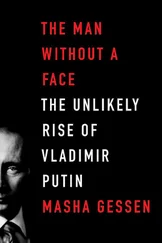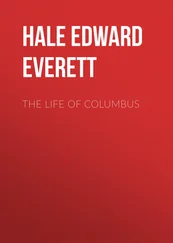Edward Hale - The Man Without a Country
Здесь есть возможность читать онлайн «Edward Hale - The Man Without a Country» — ознакомительный отрывок электронной книги совершенно бесплатно, а после прочтения отрывка купить полную версию. В некоторых случаях можно слушать аудио, скачать через торрент в формате fb2 и присутствует краткое содержание. Жанр: Альтернативная история, literature_19, foreign_antique, foreign_prose, Исторические приключения, на английском языке. Описание произведения, (предисловие) а так же отзывы посетителей доступны на портале библиотеки ЛибКат.
- Название:The Man Without a Country
- Автор:
- Жанр:
- Год:неизвестен
- ISBN:нет данных
- Рейтинг книги:4 / 5. Голосов: 1
-
Избранное:Добавить в избранное
- Отзывы:
-
Ваша оценка:
- 80
- 1
- 2
- 3
- 4
- 5
The Man Without a Country: краткое содержание, описание и аннотация
Предлагаем к чтению аннотацию, описание, краткое содержание или предисловие (зависит от того, что написал сам автор книги «The Man Without a Country»). Если вы не нашли необходимую информацию о книге — напишите в комментариях, мы постараемся отыскать её.
The Man Without a Country — читать онлайн ознакомительный отрывок
Ниже представлен текст книги, разбитый по страницам. Система сохранения места последней прочитанной страницы, позволяет с удобством читать онлайн бесплатно книгу «The Man Without a Country», без необходимости каждый раз заново искать на чём Вы остановились. Поставьте закладку, и сможете в любой момент перейти на страницу, на которой закончили чтение.
Интервал:
Закладка:
PHILIP NOLAN was as fine a young officer as there was in the "Legion of the West," as the Western division of our army was then called. When Aaron Burr 5 5 Aaron Burr had been an officer in the American Revolution. He was Vice-President from 1801 to 1805, in the first term of Jefferson's administration. In July, 1804, in a duel, Burr killed Alexander Hamilton, a celebrated leader of the Federal party. From this duel may be dated the indignation which followed him through the next years of his life. In 1805, after his Vice-Presidency, he made a voyage down the Ohio and Mississippi Rivers, to study the new acquisition of Louisiana. That name was then given to all the country west of the Mississippi as far as the Rocky Mountains. The next year he organized a military expedition, probably with the plan, vaguely conceived, of taking Texas from Spain. He was, however, betrayed and arrested by General Wilkinson,—then in command of the United States army,—with whom Burr had had intimate relations. He was tried for treason at Richmond but acquitted.
made his first dashing expedition down to New Orleans in 1805, at Fort Massac, or somewhere above on the river, he met, as the Devil would have it, this gay, dashing, bright young fellow; at some dinner-party, I think. Burr marked him, talked to him, walked with him, took him a day or two's voyage in his flat-boat, and, in short, fascinated him. For the next year, barrack-life was very tame to poor Nolan. He occasionally availed himself of the permission the great man had given him to write to him. Long, high-worded, stilted letters the poor boy wrote and rewrote and copied. But never a line did he have in reply from the gay deceiver. The other boys in the garrison sneered at him, because he lost the fun which they found in shooting or rowing while he was working away on these grand letters to his grand friend. They could not understand why Nolan kept by himself while they were playing high-low jack. Poker was not yet invented. But before long the young fellow had his revenge. For this time His Excellency, Honorable Aaron Burr, appeared again under a very different aspect. There were rumors that he had an army behind him and everybody supposed that he had an empire before him. At that time the youngsters all envied him. Burr had not been talking twenty minutes with the commander before he asked him to send for Lieutenant Nolan. Then after a little talk he asked Nolan if he could show him something of the great river and the plans for the new post. He asked Nolan to take him out in his skiff to show him a canebrake or a cotton-wood tree, as he said,—really to seduce him; and by the time the sail was over, Nolan was enlisted body and soul. From that time, though he did not yet know it, he lived as A MAN WITHOUT A COUNTRY.
What Burr meant to do I know no more than you, dear reader. It is none of our business just now. Only, when the grand catastrophe came, and Jefferson and the House of Virginia of that day undertook to break on the wheel all the possible Clarences of the then House of York, by the great treason trial at Richmond, some of the lesser fry in that distant Mississippi Valley, which was farther from us than Puget's Sound is to-day, introduced the like novelty on their provincial stage; and, to while away the monotony of the summer at Fort Adams, got up, for spectacles, a string of court-martials on the officers there. One and another of the colonels and majors were tried, and, to fill out the list, little Nolan, against whom, Heaven knows, there was evidence enough,—that he was sick of the service, had been willing to be false to it, and would have obeyed any order to march any-whither with any one who would follow him had the order been signed, "By command of His Exc. A. Burr." The courts dragged on. The big flies escaped,—rightly for all I know. Nolan was proved guilty enough, as I say; yet you and I would never have heard of him, reader, but that, when the president of the court asked him at the close whether he wished to say anything to show that he had always been faithful to the United States, he cried out, in a fit of frenzy,—
"Damn the United States! I wish I may never hear of the United States again!"
I suppose he did not know how the words shocked old Colonel Morgan, 6 6 Colonel Morgan is a fictitious character, like all the others in this book, except Aaron Burr.
Конец ознакомительного фрагмента.
Текст предоставлен ООО «ЛитРес».
Прочитайте эту книгу целиком, на ЛитРес.
Безопасно оплатить книгу можно банковской картой Visa, MasterCard, Maestro, со счета мобильного телефона, с платежного терминала, в салоне МТС или Связной, через PayPal, WebMoney, Яндекс.Деньги, QIWI Кошелек, бонусными картами или другим удобным Вам способом.
1
Frederic Ingham, the "I" of the narrative, is supposed to be a retired officer of the United States Navy.
2
" Few readers . . . observed ." In truth, no one observed it, because there was no such announcement there. The author has, however, met more than one person who assured him that they had seen this notice. So fallible is the human memory!
3
The "Levant ." The " Levant " was a corvette in the American navy, which sailed on her last voyage, with despatches for an American officer in Central America, from the port of Honolulu in 1860. She has never been heard of since, but one of her spars drifted ashore on one of the Hawaiian islands. I took her name intentionally, knowing that she was lost. As it happened, when this story was published, only two American editors recollected that the "Levant" no longer existed. We learn from the last despatch of Captain Hunt that he intended to take a northern course heading eastward toward the coast of California rather than southward toward the Equator. At the instance of Mr. James D. Hague, who was on board the "Levant" to bid Captain Hunt good bye on the day when she sailed from Hilo, a search has been made in the summer of 1904 for any reef or islands in that undiscovered region upon which she may have been wrecked. But no satisfactory results have been obtained.
4
Madison . James Madison was President from March 4, 1809, to March 4, 1817. Personally he did not wish to make war with England, but the leaders of the younger men of the Democratic party—Mr. Clay, Mr. Calhoun, and others—pressed him against his will to declare war in 1812. The war was ended by the Treaty of Peace at Ghent in the year 1814. It is generally called "The Short War." There were many reasons for the war. The most exasperating was the impressment of American seamen to serve in the English navy. In the American State Department there were records of 6,257 such men, whose friends had protested to the American government. It is believed that more than twenty thousand Americans were held, at one time or another, in such service. For those who need to study this subject, I recommend Spears's "History of our Navy," in four volumes. It is dedicated "to those who would seek Peace and Pursue it."
5
Aaron Burr had been an officer in the American Revolution. He was Vice-President from 1801 to 1805, in the first term of Jefferson's administration. In July, 1804, in a duel, Burr killed Alexander Hamilton, a celebrated leader of the Federal party. From this duel may be dated the indignation which followed him through the next years of his life. In 1805, after his Vice-Presidency, he made a voyage down the Ohio and Mississippi Rivers, to study the new acquisition of Louisiana. That name was then given to all the country west of the Mississippi as far as the Rocky Mountains. The next year he organized a military expedition, probably with the plan, vaguely conceived, of taking Texas from Spain. He was, however, betrayed and arrested by General Wilkinson,—then in command of the United States army,—with whom Burr had had intimate relations. He was tried for treason at Richmond but acquitted.
Читать дальшеИнтервал:
Закладка:
Похожие книги на «The Man Without a Country»
Представляем Вашему вниманию похожие книги на «The Man Without a Country» списком для выбора. Мы отобрали схожую по названию и смыслу литературу в надежде предоставить читателям больше вариантов отыскать новые, интересные, ещё непрочитанные произведения.
Обсуждение, отзывы о книге «The Man Without a Country» и просто собственные мнения читателей. Оставьте ваши комментарии, напишите, что Вы думаете о произведении, его смысле или главных героях. Укажите что конкретно понравилось, а что нет, и почему Вы так считаете.












